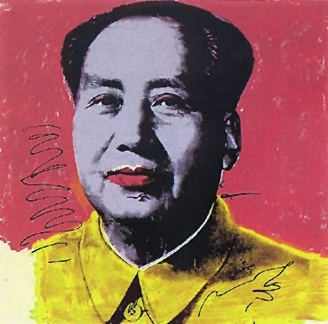I appreciate sentences that never get old, sentences founded and constructed upon an undeniable and inelastic, almost chondritic truth. Of these, DeLillo is a master. That's one of those sentences that never change. Say it three thousand times and the fact still remains: DeLillo is a master. That's that. He's another one of those writers whose every single sentence electrifies everything about the entire reading experience and gives me over to another desire to go write. Similar to Bolaño, DeLillo is one of those writers who seems to have such a stringent, keen grasp on the world, like he has access to some photo negative of this world the rest of us can't quite see, as he subverts it and then reformulates it back to us like some mirror fun-house image of the same very world in which we live so that what we end up with is something truer than what we might actually find when we leave our homes in the morning. This is one particular passage from his novel Mao II which depicts all that I've mentioned. Whichever political direction you swing, your interpretation of this could arguably be appropriate. You could say this sums of some of the left's pre-election fervor with Obama and his Arthurian protectorship; or you could rightfully drop this right on Tea Partiers and most of the right and the way they lift up their leaders in the same manner; or those rallying behind populist voice's like Beck's or whichever seething pundit you prefer to get your grayscale opinions from. Whatever the case, DeLillo seems to have been right in pointing out, is there is at this current moment a sad desperation out there. So many tired people, so many broken people, so many people without much belief left in anything, are taking every last ounce of lifeblood they have and offering it to someone from whom they expect everything in return.

"When the Old God leaves the world what happens to all the unexpended faith? He looks at each sweet face, round face, long, wrong, darkish, plain. They are a nation, he supposes, founded on the principle of easy belief. A unit fueled by credulousness. They speak a half language, a set of ready-made terms and empty repetitions. All things, the sum of the knowable, everything true, it all comes down to a few simple formulas copied and memorized and passed on. And here is the drama of the mechanical routine played out with live figures. It knocks him back in awe, the loss of scale and intimacy, the way love and sex are multiplied out, the numbers and shaped crowd. This really scares him, a mass of people turned into a sculptured object. It is like a toy with thirteen thousand parts, just tootling along, an innocent and menacing thing. He keeps the glasses trained, feeling a slight desperation now, a need to find her and remind himself who she is. Healthy, intelligent, twenty-one, serious-sided, possessed of a selfness, a teeming soul, nuance and shadow, grids of pinpoint singularities they will never drill out of her. Or so he hopes and prays, wondering about the power of their own massed prayer. When the Old God goes, they pray to flies and bottletops. The terrible thing is they follow the man because he gives them what they need. He answers their yearning, unburdens them of free will and independent thought."
DeLillo, Mao II

No comments:
Post a Comment